UN Secretary-General Antonio Guterres called for a holistic approach to building resilience in peace operations.
“We need a more holistic and integrated approach to building resilience and sustaining peace, with tailored investments across the humanitarian-development-peace nexus,” Guterres told the Security Council on Thursday.
That means strengthening synergies across the range of peace work — from conflict prevention and resolution to peacekeeping, peacebuilding and long-term development. It means deepening partnerships between the United Nations, the African Union, and other regional organisations, as well as with international and regional financial institutions. And it means better integrating the work of UN country teams with the mandates of peace operations, particularly in transition contexts, he was quoted by Xinhua news agency as saying.
In his remarks at a Security Council open debate on integrating effective resilience-building in peace operations for sustainable peace, Guterres also stressed the crucial question of finance.
“We all recognize that prevention and peacebuilding are cost-effective and save lives. But that understanding in principle is not matched with the necessary resources in practice. The international community continues to underinvest in peace,” he said.
“It is time to walk the talk,” said the UN chief.
Funding must be scaled up, and partnerships with international financial institutions must be even more strengthened, he said.
Guterres called for deepened engagement with local communities and more responsive and inclusive governments and institutions.
Peace operations create space for dialogue and political participation, reduce community violence, secure the delivery of basic services, encourage reconciliation, and promote equal access to justice, he said. “But we must act more quickly and effectively to address needs and grievances. Specifically, that means strengthening a whole-of-society approach and increasing investments that build trust, community engagement and cohesion.”
He stressed the need to bolster the leadership of women and youth in shaping the future of their countries and to ensure they benefit from peace and development gains.
The contributions of women peacekeepers and local women networks are pivotal to building community resilience and ensuring that women’s concerns are front and centre in conflict prevention and resolution efforts, he said. “At the same time, we must ensure the voices of young people are heard loud and clear in articulating peacebuilding priorities.”
The local and global contexts for peace operations are becoming more challenging by the day, he said.
Geopolitical tensions are rising. Insecurity is spreading. The drivers of instability are powerful, many, and mutually reinforcing. They include escalating climate catastrophes, worsening hunger and poverty, deepening inequalities, spreading violent misogyny, misinformation and disinformation, and waning trust in institutions, he noted, adding that all of this is fuelling political tensions, economic despair, and social unrest.
“Unconstitutional changes of government are proliferating — alongside inter-state conflicts, invasions, and wars. Entrenched divides between world powers continue to limit our ability to collectively respond. The chasm between humanitarian needs and humanitarian assistance keeps widening. Human rights and the rule of law are under assault. Cyberwarfare and lethal autonomous weapons are presenting risks we barely comprehend and lack the global architecture to contain,” said Guterres.
“Our world is transforming at breakneck speed. We must keep pace to keep peace,” he said.
Peacebuilding gains on the African continent and elsewhere are reversing. There is a need to ensure a sharper focus on prevention and building resilience. UN peace operations must be empowered and equipped to play a greater role in sustaining peace at all stages of conflict, and in all its dimensions, said the UN chief.
That requires committed, inclusive national ownership that considers the needs of the most vulnerable, including women, young people, and minorities. Above all, development and respect for all human rights — economic, social, cultural, civil, and political — are the world’s best preventive tools against violent conflict and instability, he said.
The Security Council plays a critical role in supporting the efforts of UN peace operations to build resilience and sustain peace. By acting early, engaging strategically, and speaking with one voice, the council can mobilise the international community’s political and financial support and foster the commitment of conflict actors to secure peace, he said. “I look forward to continuing to work with the council to strengthen peace operations and advance peace.”


















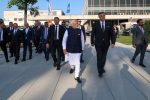

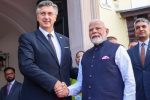
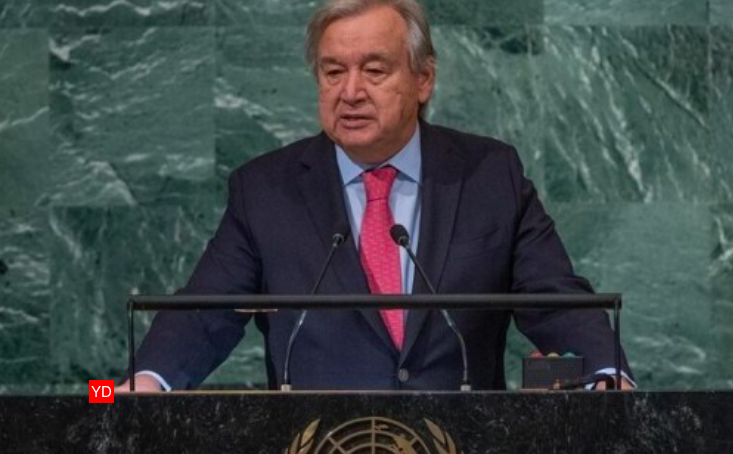
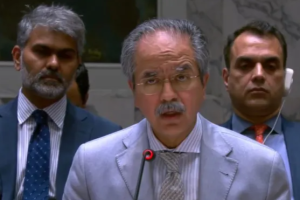
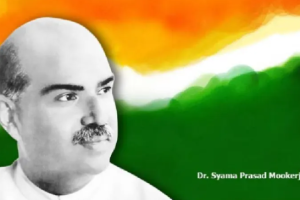

Add Comment